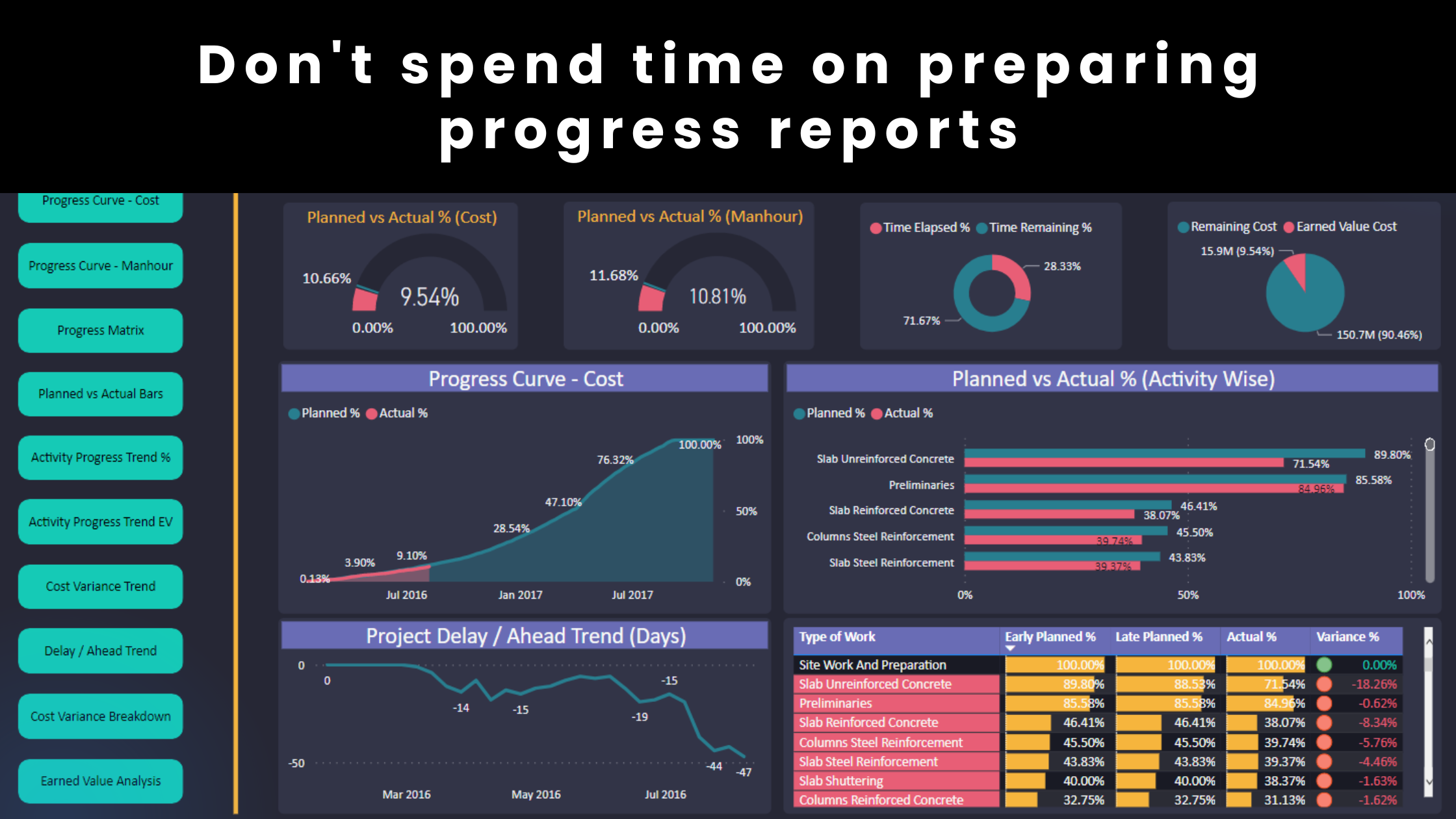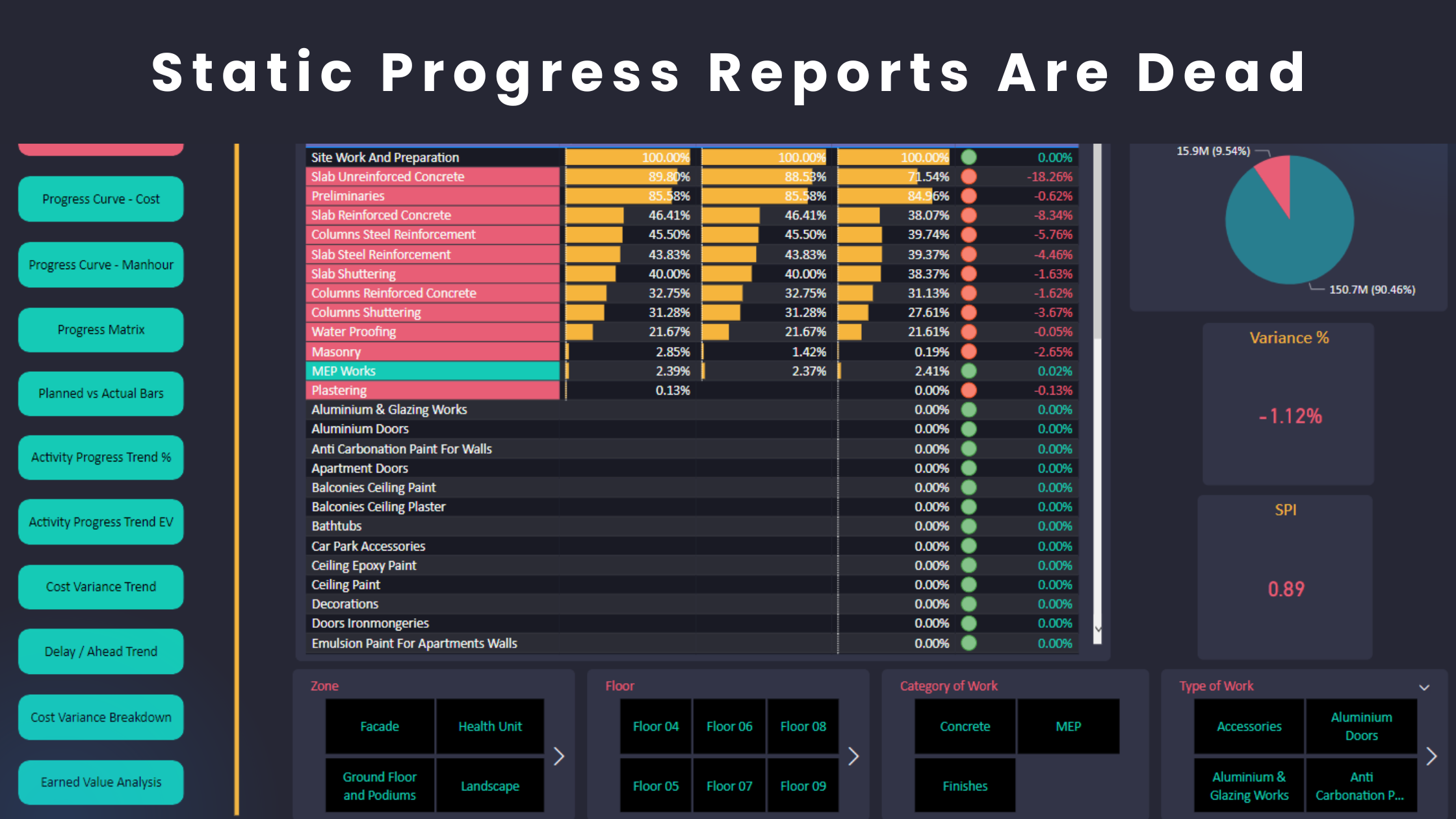Why do many planning engineers focus on progress monitoring over plan development? Planning engineers often seek to improve their skills in the progress reporting area. It makes sense because we spend most of our time monitoring the progress in the execution phase. However, if you don’t have a realistic plan, your progress monitoring will become useless and meaningless. We all know that most baseline schedules are not realistic or reliable. This article will discuss the challenges we face in the process from a practical point of view.
It is too much work
Here are some of the tasks that you need to implement in order to prepare a reliable plan.
- Review the scope.
- Add activities and relationships
- Have reasonable assumptions regarding productivity rates.
- Estimate durations.
- Determine manpower requirements.
- Develop a fully cost and resource-loaded schedule.
- Identify and analyze project risks.
- Discuss the work with project stakeholders.
However, the planning department doesn’t often have all the answers. Planning Engineers will need to discuss many things with the team. Moreover, they may need to discuss certain parts of the plan with suppliers, vendors, subcontractors and other stakeholders and then consider their feedback as inputs to the program.

Employer’s Approval
Many contractors follow the wrong approach regarding baseline approval. They ensure that A) the Baseline covers the whole scope and B) it is fully cost and resource loaded regardless of the fact that the schedule may have many unreasonable assumptions. Many planning engineers aim to produce a superficial schedule that forecasts unrealistic expectations. They include a sufficient level of detail and show beautiful bar charts and eye-catching histograms. However, the plan is simply unrealistic and unreasonable to follow because the objective was to obtain the Employer’s approval. The Employer’s approval should be a means to an end.
Employer’s Expectations
We can now agree that the development of the baseline schedule requires time and effort. However, many modern contracts require the Contractor to submit the Baseline schedule within 14-30 days after the Contract award. This is a really short time frame to prepare a practical plan which will serve as a guide for the whole project over the next, let’s say, 2-3 years. Another issue is that the level of uncertainty in the project tends to be very high at the beginning. However, such uncertainty is reduced throughout the project as more information becomes available. Again, it is hard to know all the answers at such an early stage during the baseline development. For example, Employers may include a provisional sum and nominate a Subcontractor who will carry out a specialized scope of work. After the specialized Subcontractor is nominated, a detailed execution and site clearance plan will be proposed. However, the Subcontractor’s plan will likely be different from the Main Contractor’s plan because the latter included some “assumptions” when the baseline was developed at the beginning of the project. Some of these assumptions are not feasible because a lack of specialized knowledge and the unavailability of sufficient time negatively impacted the quality of such assumptions. Similarly, more vendors, suppliers and Subcontractors will join the project at a later stage after the commercial stage is completed. Hence, incorporating all inputs and developing the overall project plan takes a lot of time.

Serious consequences
A baseline schedule is a product that you will have to live with throughout the project life cycle. You may need to implement changes as necessary to maintain the schedule but regular significant alterations may put the feasibility of your plan into question. Therefore, you must spend the necessary time and effort to create a realistic plan because there will be serious consequences for not doing so. Such consequences include:
- Unrealistic expectations and forecasts.
- Useless progress monitoring because the reference that you measuring against is unreliable.
- Unfavoured responses on your Extension of Time Claims.
Overcome the challenges
In my opinion, here are the possible actions that can help us overcome these challenges and increase our chances of developing a realistic baseline schedule.
A plan
You will need a plan to create a plan. Here is what you can do to facilitate and expedite the plan development.
- Develop project control systems to facilitate such work.
- Develop templates to make the process easier and less time-consuming. For example, you may need forms, templates,tools and methods that you can use to ask questions and receive inputs from stakeholders.
- Conduct meetings with relevant stakeholders and departments.
Change in Contract requirements
We may decide that now is the time to change the way we manage our contracts. It might be effective to impose contractual milestones and give the Contractor sufficient time to prepare the plan (one milestone at a time). Hence, the Contractor can take 30 days to prepare a much more realistic plan for the first project phase instead of the whole project. However, we will need a totally new perspective on the way we manage certain contractual requirements such as baseline development, progress reporting, delay analysis, claims and other project control aspects. We shouldn’t be too worried about changing our order though. It is a part of human nature and that’s what helped us evolve over time. We started to see major developments in modern contracts during the industrialization stage after we wanted to construct more and larger bridges, roads and factories. Thanks to technology and other construction innovations, we now have the knowledge, skills, resources and confidence to complete more mega projects. Hence, we may need to review some of the existing contract frameworks to overcome the challenges associated with baseline development.
Regards,
Osama Saad, MBA, PMP, PSP, PMI-SP
Learn More!









